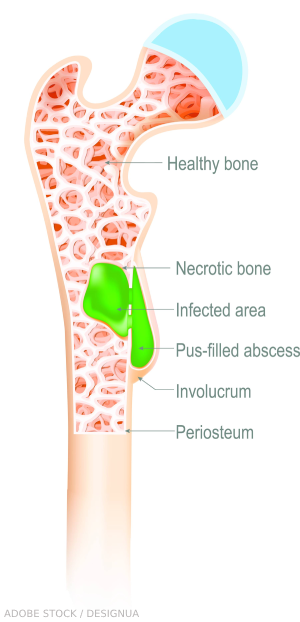 SAN DIEGO—As part of a panel on systemic autoinflammatory diseases (SAIDs) at a Nov. 15 scientific session of ACR Convergence 2023, Sivia Lapidus, MD, shared context and insights on the therapeutic management of patients with these conditions.
SAN DIEGO—As part of a panel on systemic autoinflammatory diseases (SAIDs) at a Nov. 15 scientific session of ACR Convergence 2023, Sivia Lapidus, MD, shared context and insights on the therapeutic management of patients with these conditions.
The Spectrum of SAIDs
SAIDs encompass a broad swath of individually rare disorders driven by innate immune responses without autoantibodies or antigen-specific T lymphocytes. Although first applied to monogenic hereditary fever disorders encoding for inflammasome-related proteins, the term has expanded to include other monogenic and polygenic disorders that appear to be mediated by pro-inflammatory cytokines associated with innate immunity. The diseases are characterized by fever and periodic or chronic inflammation, with different manifestations in specific diseases.1
Historically, the most studied monogenic autoinflammatory conditions have been familial Mediterranean fever (FMF), tumor necrosis factor (TNF) receptor-associated periodic fever syndrome (TRAPS), mevalonate kinase deficiency (MKD) and cryopyrin-associated periodic syndromes (CAPS). The polygenic disorder PFAPA (i.e., periodic fever, aphthous stomatitis, pharyngitis and adenitis syndrome) is the most frequent autoinflammatory condition in childhood and should be considered in the differential with monogenic diseases.2
However, other autoinflammatory syndromes exist, such as Sweet syndrome and chronic recurrent multifocal osteomyelitis. Dr. Lapidus, a pediatric rheumatologist and an assistant professor of pediatrics at the Hackensack Meridian School of Medicine in Nutley, N.J., also pointed out that around a quarter of patients diagnosed with SAIDs have undifferentiated disease that can’t yet be further classified.
Clinicians must consider treatment in the context of specific diseases, which have somewhat different pathophysiology and treatment responses. To this end, EULAR and the ACR have produced useful treatment guidelines which clinicians can refer to in detail.3,4 During the talk, Dr. Lapidus shared some general considerations in their use.

Dr. Lapidus
FMF Guideline
Dr. Lapidus recommends the EULAR 2016 FMF guideline as the key article to guide therapy in these patients.3 Clinicians have used colchicine for this disorder since the 1970s, when its benefits were serendipitously discovered.1
Colchicine is still the cornerstone of therapy, and Dr. Lapidus pointed out that for most patients, it is efficacious in preventing both FMF attacks and consequent amyloidosis. In some cases, response to colchicine can be diagnostically informative. Interleukin-1 (IL-1) inhibitors can be helpful as a second-line therapy in non-responders or as an adjunct to colchicine.3
Treatment with colchicine should begin as soon as the diagnosis is made, titrated upward if attacks continue or subclinical inflammation remains.3 Dr. Lapidus recommended titrating gradually, to help minimize side effects and improve patient tolerance. A lactose-free diet can also reduce colchicine-related side effects, which may enable patients to take the higher doses they need for full response. She also noted that it can be given daily instead of in a more traditional twice a day schedule with similar efficacy.5 Given the potential toxicities of the drug, laboratory monitoring for potential side effects is also key.
“We need to be experts in this drug, as it can also be used in a lot of other diseases such as systemic undifferentiated recurrent fever syndromes, PFAPA, Behcet’s disease and recurrent pericarditis,” Dr. Lapidus said.
2021 EULAR/ACR Guideline on IL-1-Mediated Autoinflammatory Diseases
In 2022, EULAR and the ACR published joint guidelines on IL-1-mediated monogenic autoinflammatory diseases, which provides considerations for CAPS, TRAPS, MKD and DIRA (deficiency of the interleukin-1 receptor antagonist). IL-1 blocking agents are now the preferred treatment, and they are critical for preventing the development of irreversible organ damage related to inflammation.4
Dr. Lapidus explained, “The goal of therapy is to control clinical signs and symptoms and normalize laboratory biomarkers of systemic inflammation using a treat-to-target approach. We really want to get their inflammatory response rapidly under control.”
Clinicians should not hesitate to start IL-1 inhibitors if they suspect one of these diagnoses, even if not fully confirmed. In this context, Dr. Lapidus noted that the IL-1 blocker canakinumab, which has a very long half-life, may be easier for patients to manage in terms of compliance compared to rilonacept and especially anakinra, which has the shortest half-life of these agents.
Dr. Lapidus noted that patients with more severe disease or disease with specific manifestations (e.g., central nervous system involvement) may require more frequent and higher doses compared to those with more mild symptoms. She also underscored that in organ-threatening disease, IL-1 inhibitor treatment should typically continue even during an ongoing viral infection such as SARS-CoV-2.
PFAPA Consensus Treatment Plan
Although no treatment guideline for PFAPA exists due to lack of clinical trials, the 2020 consensus treatment plan from the Childhood Arthritis and Rheumatology Research Alliance (CARRA) can help clinicians shape their management. Hopefully, the consensus plan will lead to future comparative effectiveness studies that can be used in future evidence-driven guidelines.6
Clinicians can approach treatment via four different arms: 1) antipyretics, which may be sufficient for some patients, 2) corticosteroids, 3) prophylaxis via colchicine or cimetidine or 4) tonsillectomy without or without additional adenoidectomy. Although the monogenic disorders previously mentioned may require lifelong interventions, PFAPA is usually self-limited and relatively benign, resolving by adolescence.
Treatment Challenges
Dr. Lapidus also highlighted some of the major treatment challenges for these diseases. For example, for many patients who don’t have an identified mechanism, the best treatment approach is unclear. She noted that treatment intolerance can be a challenge, especially for diseases that require long-term therapy. Additionally, Dr. Lapidus focused on the need to learn more about drug dosing and identifying the best drugs for disorders with the potential for serious organ damage (e.g., the central nervous system in some forms of CAPS).
An ongoing challenge arises from the rarity of these diseases, which poses barriers in performing trials. Although numbers of trials in these diseases have increased over the past fifteen years, the research evidence base for current recommendations is still quite limited. Dr. Lapidus suggested, “We should consider basket clinical trials and organizing diseases based on mechanism. This will lead to larger groups within rare diseases that we can actually study.”
For more insights and updates on SAIDs, including talks by Fatma Dedeoglu, MD, of Boston’s Children’s Hospital and Erkan Demirkaya, MD, of the University of Western Ontario, Canada, review the full Convergence scientific session: Comprehensive Care for Systemic Autoinflammatory Diseases.
Ruth Jessen Hickman, MD, is a graduate of the Indiana University School of Medicine. She is a freelance medical and science writer living in Bloomington, Ind.
References
- Broderick L, Hoffman HM. IL-1 and autoinflammatory disease: Biology, pathogenesis and therapeutic targeting. Nat Rev Rheumatol. 2022;18(8):448–463.
- Soriano A, Soriano M, Espinosa G, et al. Current therapeutic options for the main monogenic autoinflammatory diseases and PFAPA Syndrome: Evidence-based approach and proposal of a practical guide. Front Immunol. 2020;11:865.
- Ozen S, Demirkaya E, Erer B, et al. EULAR recommendations for the management of familial Mediterranean fever. Ann Rheum Dis. 2016;75(4):644–651.
- Romano M, Arici ZS, Piskin D, et al. The 2021 EULAR/American College of Rheumatology points to consider for diagnosis, management and monitoring of the interleukin-1 mediated autoinflammatory diseases: Cryopyrin-associated periodic syndromes, tumour necrosis factor receptor-associated periodic syndrome, mevalonate kinase deficiency, and deficiency of the interleukin-1 receptor antagonist. Ann Rheum Dis. 2022;81(7):907–921.
- Polat A, Acikel C, Sozeri B, et al. Comparison of the efficacy of once- and twice-daily colchicine dosage in pediatric patients with familial Mediterranean fever—a randomized controlled noninferiority trial. Arthritis Res Ther. 2016;18:85.
- Amarilyo G, Rothman D, Manthiram K, et al. Consensus treatment plans for periodic fever, aphthous stomatitis, pharyngitis and adenitis syndrome (PFAPA): A framework to evaluate treatment responses from the childhood arthritis and rheumatology research alliance (CARRA) PFAPA work group. Pediatr Rheumatol Online J. 2020;18(1):31.


